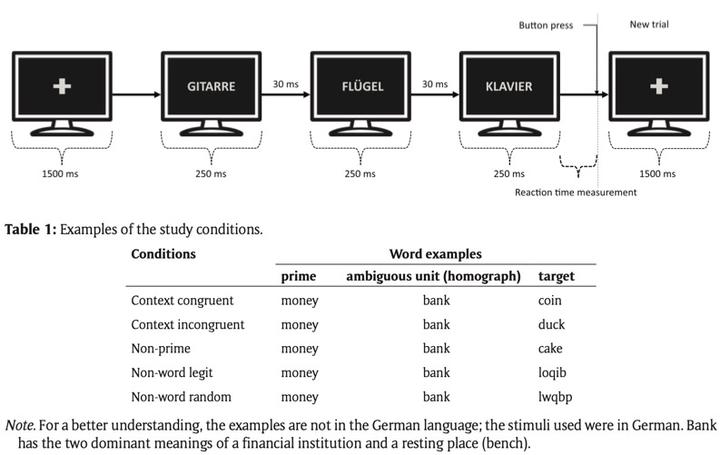Semantic priming with homonymous nouns - hints of clarifying the issue of selective vs. non-selective priming

Abstract
In this study, ways of accessing information about ambiguous words were tested. The non-selective access hypothesis states that all meanings of an ambiguous word are activated for retrieval. In contrast the selective access hypothesis predicates that only the meaning that fits the semantic context is accessed. To test this, 29 students (Age: 21.7 years [SD = 3.09]; 12 males, 17 females) were given a lexical decision task in order to record reaction times. Each trial had three stimuli while the second stimulus consists of a lexical ambiguity (e.g., bank). We found no difference in reaction times and error rates between conditions with and without semantic association, which favours the non-selective access hypothesis.
Type
Publication
Journal of European Psychology Students